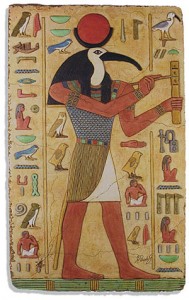30:463 Contemporary Critical Theory
Winter 2014
Instructor: Dr. Reinhold Kramer
109 Original Building/Clark Hall
727-7344 kramer@brandonu.ca
Office hours: 2:40-3:30 p.m. (Mon., Wed., Thur.)
https://people.brandonu.ca/kramer/

Course Description:
An introduction to recent literary theories, including cognitive, structuralist, post-structuralist, psychoanalytic, feminist, gay, materialist, and evolutionary approaches. These theories will be examined in light of their aims, general principles, strengths, weaknesses, and critical statements by representative theorists. Although the History of Literary Criticism is strongly recommended as an introduction to Contemporary Critical Theory, it is not a prerequisite.
Assignments: 1. Class Participation 10%
2. Reading Test (on entire novel) 20 January 5%
3. Seminar presentation various; choose by 17 Jan. 10%
4. Mid-term Test 14 February 15%
5. Research Paper (12-14 pages) due 11 April 20%
6. Final Exam 21 April, 2-4 p.m. 40%
Note: There may be penalties for lateness, depending upon circumstances. Reading tests cannot be postponed, and missed tests cannot be rewritten without a doctor’s note or other documentation. Cite all your sources – assignments containing plagiarism will be graded “0” and will result in disciplinary action. See BU General Calendar 4.2.2 “Academic Integrity.” No cell phones in class.
For the very shy: in place of “class participation” you may hand in, 5 times during the course, short (1-page, single-spaced, typed) analyses, not paraphrases, of the readings under discussion that day. These commentaries must be handed in before we discuss the readings in class, and are worth 2% each. No commentaries will be accepted after class discussions for any reason.
It’s possible that a student may find readings and/or discussions of controversial matters troubling. If so, please contact the instructor immediately for alternative assignments or an alternative course.
Grading
Outstanding Good Satisfactory Weak Inadequate
A+ 90 & up B+ 77-79 C+ 67-69 D+ 57-59 F 0-49
A 84-89 B 74-76 C 64-66 D 54-56
A- 80-83 B- 70-73 C- 60-63 D- 50-53
Texts:
Leitch, Vincent B. et. al. The Norton Anthology of Theory and Criticism. Norton. 2nd ed.
Vanderhaeghe, Guy. The Englishman’s Boy. McClelland. (*Read by 20 Jan.)
Tentative Schedule:
Jan. 6, 8 Introduction to Semiology
Components of the Speech Act
Jakobson, fr Linguistics and Poetics, 1144-52
Psychoanalysis
10 Freud, “The Material & Sources of Dreams,” “The Dream-Work,”
The Interpretation of Dreams 814-21
13 Cixous, “The Laugh of the Medusa,” 1942-59
15, 17 Lacan, “The Mirror Stage as Formative of the Function of the I
as Revealed in Psychoanalytic Experience,” 1163-9
20 Reading Test
20 Vanderhaeghe, The Englishman’s Boy
22, 24 Slavoj Žižek, Enjoy Your Symptom! (Library Reserve BF109.L28Z59)
“Why Does a Letter Always Arrive at Its Destination?” 3-12
“Why is Every Act a Repetition?” 96-99, 102-5
Structuralism
27 de Saussure, “The Object of Linguistics,” “Nature of the Linguistic Sign,”
Course in General Linguistics, 850-6
Jakobson, “The Metaphoric and Metonymic Poles,” Two Aspects of
Language & Two Types of Aphasic Disturbances, 1152-6
29 Todorov, “Structural Analysis of Narrative,” 2023-30
31 Barthes, “The Death of the Author,” “Photography & Electoral Appeal,”
Mythologies, 1320-6
Feb. 3 The Englishman’s Boy
Post-Structuralism
5 Austin, “Performative Utterances,” 1289-1301
7-12 Derrida, “Exergue” & “The Exorbitant,” Of Grammatology, 1688-97
14 Mid-term Test
24, 26 Foucault, “The Carceral,” Discipline & Punish, 1490-1502
28 Baudrillard, from The Precession of Simulacra, 1556-66
Reception and Cognitive Theories
Mar. 3 Iser, “Interaction between Text & Reader,” 1524-32
5 Lisa Zunshine, Why We Read Fiction (Library Reserve PN3331. Z86)
“Attributing Minds,” 3-10, 16-22
“Tracking Minds,” 47-54
7 Grodal, Embodied Visions 145-7, 150, 152-5, 158-65, 271-8
(Library Reserve PN1995. G6886 2009)
Feminist, Gay, and Queer Theories
10 De Beauvoir, “Myth & Reality,” The Second Sex, 1265-73
Mulvey, “Visual Pleasure and Narrative Cinema,” 2084-95
12 Haraway, “A Manifesto for Cyborgs: Science, Technology,
& Socialist-Feminism in the 1980s,” 2190-2220
14, 17 Butler, “Subversive Bodily Acts,” Gender Trouble, 2540-53
Evolutionary Theory
19, 21 Robert Storey, Mimesis & the Human Animal
(Library Reserve PN56.M536S76)
“‘I Am I Because My Little Dog Knows Me’: Of Apes & Essences,” 3-17
24, 26 “‘What Is Art For?’ Narrative & the Ludic Reader,” 101-14
28 “Comedy & the Relaxed Open-Mouth Display,” 153-62
“Tragedy: The Ape Gets Serious,” 131-9, 150-1
31 Brian Boyd, On the Origin of Stories
(Library Reserve PN3451. B69 2009)
“Fiction as Adaptation,” 188-208
Apr. 2 cooperation in The Odyssey, 289-96
Marxism/Materialism
4 Marx, “The Fetishism of Commodities,” Capital, 663-71
Jameson, “Postmodernism & Consumer Society,” 1846-60
7, 9 Bourdieu, from Distinction: a Social Critique of the Judgment of
Taste 1664-70
Bakhtin, “Discourse in the Novel,” 1076-81
11 Research Paper due
Review
April 21 Final Exam, 2-4 p.m.
Seminar Presentation
Choose a theorist from among the following: Cixous, Lacan, Todorov,
Barthes, Austin, Foucault, Baudrillard, Iser, Zunshine, Grodal,
Mulvey, Haraway, Butler, Storey, Boyd, Jameson
Let me know your choice by 17 Jan. (first-come, first-choice)
You will present on whatever day we get to the theorist
(the schedule is somewhat tentative)
Length: 5-10 minutes (prepare slightly more material than needed;
plan where to cut to meet the time limit)
Topic: –explain the major points that the theorist makes in his or her article
–explain how the theorist’s work fits into a larger paradigm
(e.g. post-structuralism)
–give a few strengths & weaknesses of the theorist’s approach
–no biographies, please
Research: –in addition to the syllabus article, use 3 articles
or book chapters (by or about the theorist)
–at the presentation, give me a sheet of your references & of your main points
–you are welcome to use the seminar presentation as a partial basis of
your research paper
